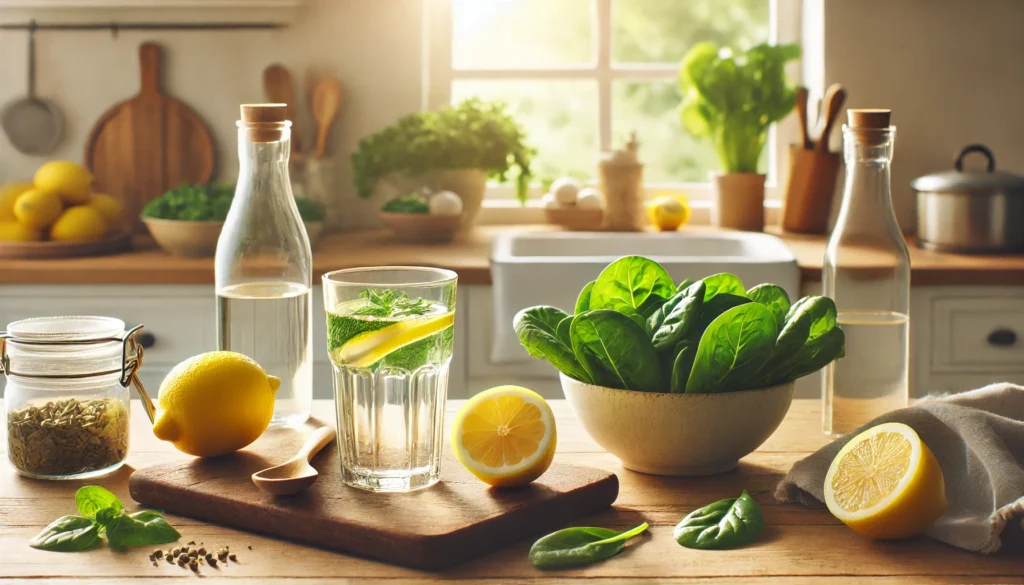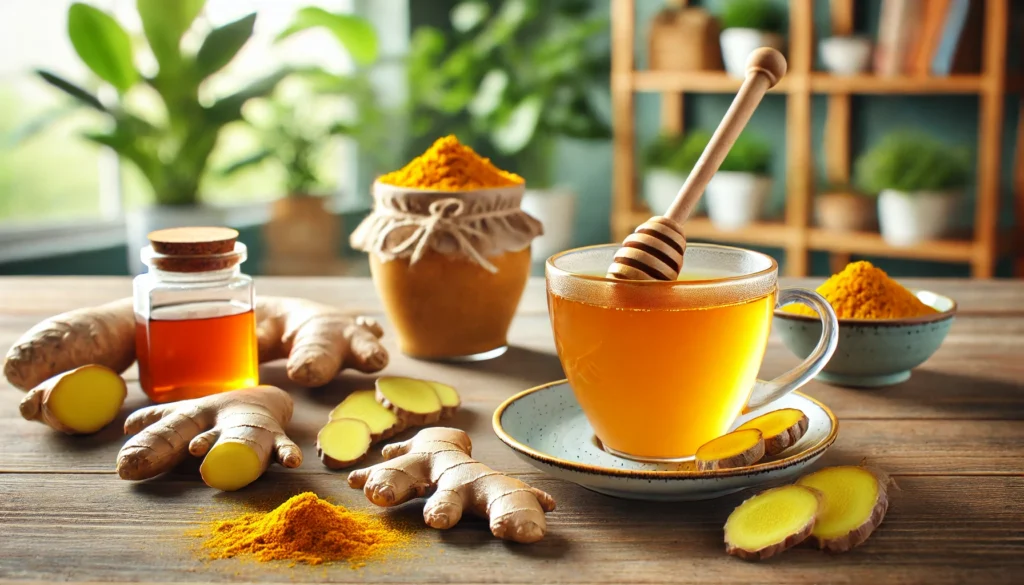Liver inflammation, medically known as hepatitis, is a condition that can result from various factors, including viral infections, excessive alcohol consumption, fatty liver disease, and exposure to toxins. The liver plays a crucial role in detoxification, metabolism, and immune system function, making its health a priority for overall well-being. While medical intervention may be necessary in severe cases, natural remedies and lifestyle adjustments can significantly help in reducing liver inflammation and alleviating associated pain. Understanding how to calm liver inflammation hepatitis, how to stop liver pain immediately at home, and how to reduce an inflamed liver can empower individuals to take proactive steps in their healing journey.
You may also like: The Best Liver Detox Supplements: How to Choose Safe and Effective Support for Your Liver
Understanding Liver Inflammation and Its Causes
Liver inflammation can manifest through symptoms such as abdominal pain, fatigue, nausea, jaundice, and swelling in the abdomen. One of the primary causes of liver inflammation is hepatitis, which can be viral (Hepatitis A, B, C, D, or E), autoimmune, or caused by excessive alcohol intake. Non-alcoholic fatty liver disease (NAFLD) is another prevalent cause, often linked to obesity and metabolic syndrome. Environmental toxins, medications, and an unhealthy diet can also contribute to liver stress and inflammation.
The liver has remarkable regenerative abilities, but chronic inflammation can lead to fibrosis, cirrhosis, or even liver failure if left unchecked. Identifying the root cause of inflammation is crucial in formulating an effective approach to naturally reducing the burden on the liver and promoting healing.

Dietary Changes to Support Liver Health
Nutrition plays a pivotal role in liver function, as certain foods can either exacerbate or alleviate inflammation. An anti-inflammatory diet rich in whole foods, fiber, and antioxidants can support liver detoxification and repair.
Cruciferous vegetables such as broccoli, Brussels sprouts, and cauliflower contain sulfur compounds that enhance detoxification pathways in the liver. Leafy greens, including spinach and kale, are high in chlorophyll, which helps neutralize toxins. Incorporating beets into the diet can stimulate bile flow, facilitating the elimination of waste from the liver. Garlic and onions, rich in allicin and selenium, also contribute to liver protection.
Healthy fats, such as those found in avocados, nuts, seeds, and olive oil, provide anti-inflammatory benefits and support liver function. Omega-3 fatty acids from sources like fatty fish (salmon, sardines, and mackerel) can reduce inflammation and prevent fat accumulation in the liver.
Processed foods, refined sugars, trans fats, and excessive alcohol consumption should be minimized, as they contribute to oxidative stress and liver damage. Reducing intake of high-fructose corn syrup and sugary beverages is particularly important, as they can lead to fatty liver disease and exacerbate inflammation.
Hydration and Liver Detoxification
Proper hydration is essential for liver detoxification, as water helps flush out toxins and metabolic waste. Drinking at least eight glasses of purified water daily supports kidney function, which works in tandem with the liver to eliminate toxins.
Herbal teas such as dandelion root tea, milk thistle tea, and green tea have hepatoprotective properties. Dandelion root stimulates bile production, aiding digestion and detoxification. Milk thistle contains silymarin, a compound known for its liver-regenerating and anti-inflammatory properties. Green tea, rich in catechins, can help protect liver cells from damage and reduce fat accumulation.
Lemon water, consumed in the morning, can stimulate liver enzymes and aid in the breakdown of toxins. Apple cider vinegar, diluted in water, may also support liver function by promoting digestion and balancing blood sugar levels.
Herbal Remedies for Liver Inflammation
Several herbs have been traditionally used to support liver health and reduce inflammation. Turmeric, with its active compound curcumin, has potent anti-inflammatory and antioxidant properties that can help mitigate liver damage. Consuming turmeric with black pepper enhances its bioavailability, maximizing its benefits.
Ginger, another powerful anti-inflammatory herb, can aid digestion and reduce oxidative stress in the liver. Licorice root has been shown to have hepatoprotective effects, particularly in cases of hepatitis.
Burdock root, commonly used in traditional medicine, promotes detoxification by increasing bile flow and supporting liver function. Artichoke extract has been found to enhance liver enzyme production and support detoxification processes.
Lifestyle Modifications to Reduce Liver Inflammation
Engaging in regular physical activity can improve liver function by reducing fat accumulation and enhancing blood circulation. A combination of cardiovascular exercise, strength training, and yoga can help maintain a healthy weight and alleviate liver stress.
Stress management is equally important, as chronic stress can lead to hormonal imbalances and increased inflammation. Practices such as meditation, deep breathing exercises, and mindfulness can lower stress levels and promote overall well-being.
Prioritizing sleep is crucial for liver health, as the body undergoes repair and detoxification during rest. Aim for at least seven to nine hours of quality sleep each night to support optimal liver function.
Avoiding Environmental Toxins
Reducing exposure to environmental toxins can significantly lower the burden on the liver. Opt for organic produce whenever possible to minimize pesticide exposure. Avoiding processed foods with artificial additives and preservatives can also prevent unnecessary toxin accumulation.
Using natural cleaning products and personal care items free of harsh chemicals can reduce toxic load. Limiting exposure to air pollution and secondhand smoke further supports liver health.
When to Seek Medical Attention
While natural remedies can support liver health, persistent symptoms such as severe pain, jaundice, or unexplained weight loss warrant medical evaluation. Blood tests to assess liver enzyme levels, imaging studies, and liver biopsies may be necessary to determine the underlying cause of inflammation.
Individuals with pre-existing liver conditions should consult their healthcare provider before making significant dietary or lifestyle changes. Early intervention and a holistic approach to liver health can prevent complications and promote long-term well-being.

Frequently Asked Questions (FAQ) on Liver Health
1. What are the most effective ways to reduce liver inflammation at home?
Reducing liver inflammation at home requires a combination of dietary changes, lifestyle adjustments, and natural remedies. Incorporating anti-inflammatory foods such as leafy greens, turmeric, and fatty fish can help lower inflammation levels. Hydration is key, so drinking plenty of water and herbal teas like dandelion or milk thistle can support liver detoxification. Managing stress through meditation, yoga, or deep breathing exercises can also contribute to liver health. Additionally, limiting alcohol, processed foods, and refined sugars can significantly aid in reducing an inflamed liver.
2. How can I calm liver inflammation if I have hepatitis?
If you have hepatitis, managing liver inflammation requires a more targeted approach. Following a nutrient-rich, liver-friendly diet is crucial, emphasizing lean proteins, fresh fruits, and vegetables while avoiding heavy fats and fried foods. Staying hydrated with water and herbal infusions can assist in flushing out toxins. Stress management techniques such as acupuncture or massage therapy may also be beneficial. Additionally, regular monitoring by a healthcare provider ensures that any progression of liver damage is detected early, allowing for timely medical interventions.
3. What home remedies help stop liver pain immediately?
If you’re experiencing liver pain, certain home remedies may provide immediate relief. Applying a warm compress to the abdomen can help relax muscles and alleviate discomfort. Drinking chamomile or ginger tea can soothe digestive distress and reduce liver inflammation. Engaging in light stretching or yoga poses designed for liver support can improve circulation and relieve pressure. If the pain persists, avoiding heavy meals and opting for easily digestible foods like soups and smoothies can prevent further irritation. However, persistent or severe pain should be evaluated by a healthcare professional.
4. Are there specific exercises that help reduce liver inflammation?
Yes, regular exercise plays a significant role in reducing liver inflammation. Moderate aerobic activities such as brisk walking, swimming, or cycling can improve circulation and promote liver function. Strength training exercises help build muscle mass, which can assist in reducing fatty deposits around the liver. Yoga and Pilates can support liver health by stimulating circulation to the abdominal organs. Engaging in daily movement, even through household activities, can contribute to liver detoxification. Consistency is key, so incorporating at least 30 minutes of physical activity most days of the week is recommended.
5. How does hydration impact liver inflammation and pain?
Staying well-hydrated is essential for liver health, as it supports detoxification and reduces inflammation. Drinking sufficient water helps flush out toxins, preventing buildup that can contribute to liver pain. Herbal teas, such as green tea or licorice root tea, provide additional anti-inflammatory benefits. Avoiding excessive caffeine and alcohol is important, as they can dehydrate the body and strain the liver. If you struggle with hydration, setting reminders or infusing water with fruits and herbs can make it more appealing.
6. What supplements support liver health and reduce inflammation?
Several supplements have been shown to support liver health and reduce inflammation. Milk thistle is widely recognized for its liver-protective properties, as it contains silymarin, which supports detoxification. Omega-3 fatty acids from fish oil can help combat liver inflammation. Turmeric supplements, particularly those containing curcumin, provide powerful anti-inflammatory benefits. Vitamin E and N-acetylcysteine (NAC) have also been studied for their potential role in reducing liver damage. However, it’s important to consult a healthcare provider before starting any new supplement regimen.
7. Can stress contribute to liver inflammation and pain?
Yes, chronic stress can negatively impact liver health by increasing inflammation and contributing to poor digestion. When stressed, the body releases hormones that can lead to increased fat storage around the liver, worsening inflammation. Stress also weakens the immune system, making it harder for the liver to fight infections such as hepatitis. Engaging in relaxation techniques like meditation, deep breathing, or progressive muscle relaxation can help mitigate these effects. Prioritizing good sleep hygiene and setting boundaries in daily life can further support liver function.
8. What foods should be avoided to reduce an inflamed liver?
To reduce an inflamed liver, it’s essential to avoid processed foods high in refined sugars and unhealthy fats. Fried foods, fast food, and excessive dairy products can contribute to liver stress. Red meats and highly processed meats like sausages and bacon should be limited. Alcohol is a significant contributor to liver inflammation and should be avoided or consumed minimally. Additionally, artificial sweeteners and excessive caffeine intake can disrupt liver function, so opting for natural, whole foods is the best approach.
9. How does sleep quality affect liver inflammation?
Poor sleep quality can contribute to liver inflammation by increasing oxidative stress and disrupting the body’s natural detoxification cycle. During sleep, the liver works to process toxins and regenerate cells. Chronic sleep deprivation can impair these processes, leading to increased fat accumulation in the liver. Establishing a consistent sleep routine, reducing screen time before bed, and avoiding late-night heavy meals can improve sleep quality. Additionally, natural sleep aids like magnesium or valerian root tea may promote restful sleep, supporting overall liver health.
10. Can liver inflammation be reversed with diet and lifestyle changes?
In many cases, liver inflammation can be reversed or significantly improved with dietary and lifestyle changes. Eliminating alcohol, processed foods, and refined sugars allows the liver to heal. Incorporating antioxidant-rich foods such as berries, leafy greens, and nuts can help reduce oxidative stress. Regular physical activity and stress management techniques further support liver repair. While mild to moderate inflammation can often be managed naturally, severe cases may require medical intervention. Regular liver function tests can help track progress and ensure optimal health outcomes.

Final Thoughts on Reducing Liver Inflammation Naturally
Understanding how to calm liver inflammation hepatitis, how to stop liver pain immediately at home, and how to reduce an inflamed liver is essential for those seeking natural and effective remedies. By adopting a liver-friendly diet, staying hydrated, incorporating herbal remedies, engaging in regular exercise, managing stress, and minimizing toxin exposure, individuals can support their liver’s natural healing processes. These holistic strategies not only help reduce inflammation but also promote overall health and vitality. Prioritizing liver health today can lead to lasting benefits and a higher quality of life in the future.
natural liver detox, liver inflammation remedies, foods for liver health, holistic liver support, liver pain relief, non-alcoholic fatty liver disease, herbal liver support, turmeric for liver health, milk thistle benefits, anti-inflammatory diet, healthy liver function, liver detoxification tips, stress management for liver health, hydration and liver health, liver-friendly lifestyle, detoxifying herbs for liver, fatty liver prevention, liver enzyme balance, environmental toxin reduction, gut health and liver function
Further Reading:
10 Home Remedies for Fatty Liver Disease
5 Ways to Be Kind to Your Liver
Disclaimer
The information contained in this article is provided for general informational purposes only and is not intended to serve as medical, legal, or professional advice. While NewsHealthWatch strives to present accurate, up-to-date, and reliable content, no warranty or guarantee, expressed or implied, is made regarding the completeness, accuracy, or adequacy of the information provided. Readers are strongly advised to seek the guidance of a qualified healthcare provider or other relevant professionals before acting on any information contained in this article. NewsHealthWatch, its authors, editors, and contributors expressly disclaim any liability for any damages, losses, or consequences arising directly or indirectly from the use, interpretation, or reliance on any information presented herein. The views and opinions expressed in this article are those of the author(s) and do not necessarily reflect the official policies or positions of NewsHealthWatch.

